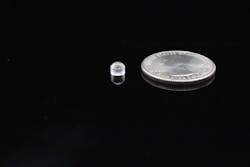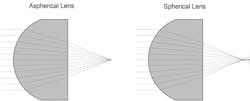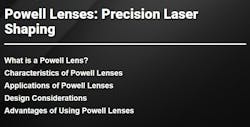Why are Aspheric Lenses Significant?
Aspheric lenses play a crucial role in various applications by reducing visual imperfections and delivering clearer images. They are highly valued in different fields. Larger aspheric lenses are employed in telescopes and cameras, while smaller ones serve essential functions in fiber optic networks, laser devices, and surgical equipment. Regardless of the application, aspheric lenses offer numerous advantages to users, including:
Enhanced Precision: Through the reduction of spherical aberration and the concentration of light into a singular focal point, aspheric lenses exhibit the ability to generate images of heightened sharpness. This characteristic renders them highly suitable for applications necessitating utmost precision, such as laser diode focusing.
Increased Aperture Size: Aspheric lenses empower optical engineers to expand the numerical aperture size without compromising the quality of images. This attribute proves invaluable in applications that require optimal transmission of light.
Improved Efficiency: By rectifying aberrations that typically necessitate the utilization of multiple spherical lenses, aspheric lenses possess the capacity to replace intricate multi-lens systems. This capability contributes to the creation of smaller, lighter, more efficient, and cost-effective assemblies utilizing a single aspheric lens.
Furthermore, customized aspheric lenses offer flexible solutions to intricate problems due to their surface shape, which is specifically designed to minimize aberration in particular applications.
Our specialization lies in the manufacturing of molded and polished aspheric lenses. Additionally, we possess the capability to produce and verify customized freeform optical components and bonded aspheric lenses internally. Furthermore, we offer tailored anti-reflection coatings that cover a wide range of wavelengths, spanning from ultraviolet (UV) and visible light to near-infrared (NIR) and long-wavelength infrared (LWIR).





